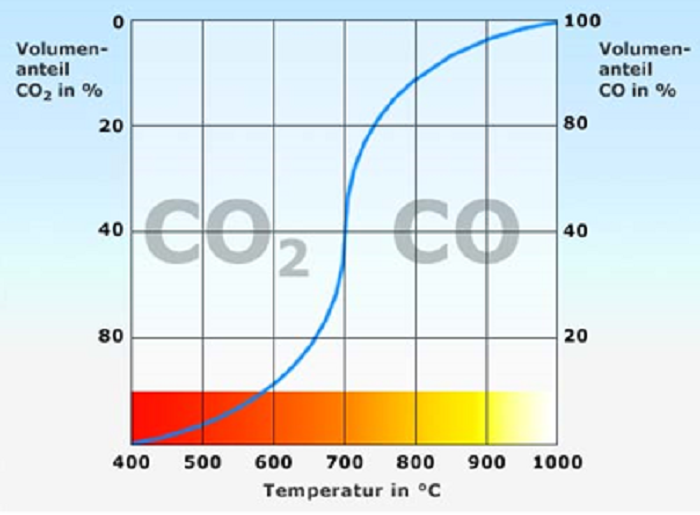We all know the story of the faxmachine : At first there where no fax machines and people said “Why would I buy a fax machine, I can send nothing to nobody”. But from the few owners the use of faxes grew and soon they where a necessary part of every office. This dynamic has repeated itself over and over again in other situations, the use of phones, the growth of Paypall (which was driven by investments).
Roboeconomics, with its simple principles must compete with the current economic doctrine (which gives energy no special role and relies on fossil fuel credit to work). There is only one Roboeconomist now, namely me as far as I know. Thomas Piketty or Kate Raworth are just moving the deck chairs around, in a counterproductive manner. They are promoted for a reason, they create a bank-protecting narrative for people to jostle with while banks go about their business as usual.
Wealth = Energy x Skills x Materials
The disruptive concept of an economy build entirely on renewables, and what this means for credit creation needs promotion too. The starting point is a redefinition of “Wealth”, “Capital” and “Money” and a rethink of what it takes to create it.
What is Wealth
Wealth is what people need and enjoy in their lives. Food is wealth, clean water is wealth, a nice home is wealth. Wealth is subjective, and what counts as wealth differs from person to person. Wealth can satisfy a person, and make him/her require no more resources to be happy. The goal of human activity is to create and enjoy wealth.
What is Capital
Capital is what you use to create wealth. A hammer is capital when you use it to build a bed or table, something people need or enjoy. Capital can be a machine that weaves cloth or a truck that moves products around. Capital can also mean knowledge and understanding. An expert on breeding plants is capital. A computer that can optimize designs is capital. Even a myth can be capital, so a fantasy in the minds of people can be used to produce wealth. Christianity in Germany is capital for example, it dictates a person has to work hard to serve God.
What is Money
Money is a token for exchange, nothing more , nothing less. It solves timing issues (the thing offered is not available when it can be accepted) in trade. Money only works if capital or wealth exists. Because of this function money can help organize activities that would otherwise be impossible, like having airlines and railsystems.
Banks like to call money capital, and say they are capitalist because they create money against assets. They also like to call money wealth, and try to make you believe people with a lot of money are very wealthy. But if the owners of wealth and capital refuse to part with it for the money of the bank, there is no way that money can pretend to be either.
Because banks know they are lying, they must put people into debt. Debt ensures the need for money. Without any debt in society, wealth and capital would be enough to make it work, the time buffering function of money can be replaced by simple IOUs or shares. We could all have railroad shares and enable a railroad system we could all use when we needed to. Of course normally this would be arranged by the biggest organization, the government, through taxes (this was the primary purpose of government besides protection).
The Relation between Money and Energy
The biggest insight that is necessary to understand Roboeconomics is that money allocates energy in our economy, mainly fossil energy. If you use money to buy a product or service, your money will eventually be used to buy energy. Even if you buy an apple from a biological farmer he/she probably used a tractor, and your money is going towards some diesel for that tractor. This specific trade, your ‘time delay token’ vs. fossil energy, is both the core of our economy and its biggest problem.
Why is it a problem? Because nobody makes fossil energy, it is found and used up, no new fossil energy is created like apples or cars or musical compositions. It is a one way process, find fossil fuel, get it to the ‘market’, trade it for money, burn it, find more fossil fuels. Until there are none to be found (in theory). We all pretend we work, but we should consider how much of our work is done by fossil fuel, how much we use it. This is like a crutch we walk with, we do not realize we can not walk at all without it, because it gives us no discomfort to use it (although smog and a dying planet).
When we think we need money, we really need fossil fuel money, because that never comes back if we spend it. If we where a 18th century town with five people, farmer, baker, butcher, tailor, doctor, we could keep each other alive with NO money. But today that would be impossible. We would all need energy for plowing, baking, cooling, sowing (not much but ok) and production of pharmaceuticals, we would ask customers for money because we could not buy supplies with credit that can’t buy fossil fuels.
The Roboeconomy sees a Light
The above has consequences :
- The power of banks is based on the availability of fossil fuels.
- Distributed renewable energy (RE) threaten banks
- Own renewable energy and you can create wealth freely
- The potential to RE wealth creation far exceeds that of our current system (2500 times!)
The Roboeconomy is about focussing on this wealth, to start organizing the combination of renewable energy, skills and materials to create wealth, preferably without any involvement of banks or outside trade (so called Extraeconomics). In the current economy pure debt free RE wealth creation results in accumulation of money without having a use for it.
About the Formula for Wealth
The formula for wealth is:
Wealth = Energy x Skills x Materials
Let’s explain the terms, so we can see it is a general formula.
The term Energy can mean manpower, solar or wind electricity, or solar heat or nuclear power or fossil fuel energy. To make a car you need to manipulate the materials (say stainless steel) in such a way it takes the shape of a chassis in all its details. The steel resist this manipulation and this requires energy to overcome. To make a cake in an oven the ingredients need to be heated to undergo chemical changes, that requires heat energy. But the mixing of the ingredients with a machine required electricity, and the loading of the machine by a baker burned metabolic glucose.
The term Skills is also general, it means the ability to choose actions to achieve a specific outcome. A skilled racecar driver is faster around the track with the same car than an unskilled driver. It is the ability to link actions in sequences, to recognize choices that need to be made, to recognize a target is not yet reached. People have skills, but machines can have skills as can computers. You need skills to create wealth, because wealth is not random. A man can create a beautifull graden or grow crops, and create wealth, but without the ability to choose his actions to reach these outcomes he would not succeed. If you consider a paperclip wealth the machine making them embodies skills as it succeeds in bending and cut a wire to make it, a sequence of specific actions. We are close to an age in which AI is so potent it will be able to imagine and create almost anything we ask it to, so ‘skills’ will become widely available.
The term materials is also general. Materials can be any input into a production process. It can be ore for steel or water to make ice cubes or old clothes to make paper. You could come across a situation where wealth itself is a material, to be recycled. Old sneakers still usefull could be recycled into new ones. Crumms of a cake can be fed to pigs to make pork.
There is a fine line between what can be used as a material and what is wealth, this is one of the biggest problems if your energy source is fossil fuels and you have banks. Because banks want to see cashflow they promote the use of fossilfuels to turn materials into wealth. They call it ‘economic growth’ and ‘the economy’. It is a destructive process. This results in wild unsustainable raising of natural materials from places that are expensive to reach. This happens because the cost of fossil fuels is arbitrary. For a plane or containership the cost of fuel is set such that it can fly and travel. In our current economy the goal is maximize fossil credit cashflow, NOT WEALTH. Banks don’t mind creating massive debt in order to secure their cashflow, they know nobody can really repay for the buring of fossil fuels. Banks or ‘the economy’ do not care about anything else.
What is a material and what is not in the roboeconomy is decided by those that enjoy the wealth, as wealth is only recognizable by people that enjoy it or dream about it. Wealth is what is being maximized, not cashflow. Money is created at the RE energy sources and distributed by the state or owner of the energy source. Excluding non renewables, leaving everything free but only monitoring average reported wealth per capita can be enough to make the Roboeconmy work. This can be an objective metric (of a subjective experience) because there is no pressure to sell anything to anyone as cashflow is not important. This is a stark contrast with today where there is immense pressure to sell fossil fuels by the banks and fossil fuel producers.
Steps Towards the Roboeconomy
- More renewable energy sources
- Reduction of debt by bankruptcies (denial of bank control)
- More debt free energy, materials and skills
- Creation of wealth in small ‘Extraeconomic’ systems
- Creation of RE based communities outside the fossil logistic network
If the above makes sense to you you can become a roboeconomist. Working with the basic principles you will find that there need to be no dense cities, in fact they are problematic. RE can be produced almost anywhere, and so can wealth especially if you embody skills in robots or automated systems. If materials are a prerequisite for wealth then it makes sense ot create more, meaning plant more trees, clean up nature, recycle plastic, etc. etc. The Roboeconomy is about maximizing wealth, and a gorgeous planet thriving with life is wealth. The upside is that it is now achievable with very little effort.
Don’t Fight them, Ignore them
The arch enemy is anyone that promotes business as usual, fossil credit creation, ‘economism’, that wants you to envy rich people or be angry if someone steals a lot of money. That is all banks dangling a promise in front of your eyes, a promise they count on you to fullfill! Ignore them, focus on the factors of wealth and build an independent network that serves you, not banks or fossil fuel companies. It is the state of the future, no matter how long the fossil/banking pressure on politics will surivive, eventually it will give in. The trick they use is to distract you in a million ways, with pain and pleasure, so you don’t realize you can be the master of your fate without them. You may realize it now, and start to practice this knowledge to your advantage..







